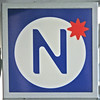Friday, January 25, 2008
Google Docs
Google Docs, should I say it, rocks. It eliminates the need for Microsoft Word for most people. It doesn't have quite as many functions, though I don't think I would notice. I think it's a harbinger of things to come on the Internet. We have to remember that the web is in its infancy. The amount of invention and the rate of invention for items on the web will only increase as more people engage in it and as it becomes a larger part of our economy. Like any emerging industries, there will be booms and busts, but I think it is fair to say that it will continue to evolve. YouTube wasn't even on the radar five years ago, and now it is ubiquitous. Since more and more people will be using web applications for work and for fun, the library absolutely needs to have a strong presence in this area.
Strong Opinions
As requested, I have "strong" opinions about the sites we've been asked to review during this segment.
The Blog Readability Test: Meh! Typically, not seen as a strong opinion, which is why I included the exclamation point. This is a parlor game as a website, and not terribly interesting at that. Furthermore, the algorithm for how they determine readability is absent. Since they don't tell me how it is being done, I can't trust it. I suspect it has everything to do with certain vocabulary words and nothing to do with anything else. In a sense, this is worthless. You are better off checking this type of thing using Word, which gives you readability and grade level information and shows you how it is determined.
Sketchcast: I will never use this site. It is an amusement, and since I don't draw I don't find it very amusing.
Scrabulous: I love this game and this site. Unfortunately, you better get to this section of Facebook soon as HASBRO, the makers of Scrabble, have filed suit. It seems to me they have a point, and unless there is some amazing settlement, we may not have Scrabulous to play much longer. I've played a total of two games, so I'll likely get over it. You don't miss what you never really had.
Wordshoot: I would have played this game so much as a kid when I was learning to type. This is one of those games that you feel good about playing and good about winning. I'm strongly in favor of it.
YahooAnswers: I abhor this site. I don't want to get my answers from such random people. It is the equivalent of yelling your question in a stadium and hoping someone has a decent answer. There's a reason a lot of the answers aren't very good and it's because there is very little incentive for answering them well. None. Lousy site.
The Blog Readability Test: Meh! Typically, not seen as a strong opinion, which is why I included the exclamation point. This is a parlor game as a website, and not terribly interesting at that. Furthermore, the algorithm for how they determine readability is absent. Since they don't tell me how it is being done, I can't trust it. I suspect it has everything to do with certain vocabulary words and nothing to do with anything else. In a sense, this is worthless. You are better off checking this type of thing using Word, which gives you readability and grade level information and shows you how it is determined.
Sketchcast: I will never use this site. It is an amusement, and since I don't draw I don't find it very amusing.
Scrabulous: I love this game and this site. Unfortunately, you better get to this section of Facebook soon as HASBRO, the makers of Scrabble, have filed suit. It seems to me they have a point, and unless there is some amazing settlement, we may not have Scrabulous to play much longer. I've played a total of two games, so I'll likely get over it. You don't miss what you never really had.
Wordshoot: I would have played this game so much as a kid when I was learning to type. This is one of those games that you feel good about playing and good about winning. I'm strongly in favor of it.
YahooAnswers: I abhor this site. I don't want to get my answers from such random people. It is the equivalent of yelling your question in a stadium and hoping someone has a decent answer. There's a reason a lot of the answers aren't very good and it's because there is very little incentive for answering them well. None. Lousy site.
Wiki Tiki Tavi
Right off the bat, I need to say, I love Wikipedia and use it all the time. I find it to be authoritative enough for my needs. Those halcyon days where I need to use footnotes and endnotes are little more than hazy memories. I'm rarely looking for specific dates, or require one hundred percent accuracy. I find it to be a wealth of knowledge. On the other hand, I don't know the authors, and I don't know why someone would be moved to add anything to this site. I don't get it. I don't know who these people are. Who are they? I know people who write for publications, I can understand what they are about and why they do their job. I get them. I don't get these people. Still, I'm glad they exist.
Looking at the IS Wiki and the YA Wiki, I think there is a lot of opportunity there. I don't know how often people other than the original authors will post on them, but I don't know if that is important. I think the idea that someone other than the original author can post helps people feel like they can be part of the process should they need to be. Also, I think it is just a good way to have information up on the web. I think it works better when it is general instructions that don't require an authority. For example, the YA Wiki is set up to grow information. On the other hand, it wouldn't work if we had a wiki for our Rules of Conduct Policy. It could be an interesting way of developing a document or brainstorming an idea for a project together. It might be an interesting experiment to see how a group might generate ideas.
Looking at the IS Wiki and the YA Wiki, I think there is a lot of opportunity there. I don't know how often people other than the original authors will post on them, but I don't know if that is important. I think the idea that someone other than the original author can post helps people feel like they can be part of the process should they need to be. Also, I think it is just a good way to have information up on the web. I think it works better when it is general instructions that don't require an authority. For example, the YA Wiki is set up to grow information. On the other hand, it wouldn't work if we had a wiki for our Rules of Conduct Policy. It could be an interesting way of developing a document or brainstorming an idea for a project together. It might be an interesting experiment to see how a group might generate ideas.
Thursday, January 24, 2008
Wild Thing, Library Thing
It turns out, I like the application Visual Bookshelf, on Facebook much better than LibraryThing. I think having an application like this for our users to opt into would be great, especially if it automatically held the books that they had checked out or read. I read some reviews of titles that I had put on and found them lacking. In truth, I since I'm not the type of person to write a review for pleasure, I don't think I can appreciate people that do. I think the act of writing it makes their judgment suspect in some way. The suggestion area seems not to be so great either. I requires that you tag at least five books before they offer suggestions. I'm assuming that then the suggestions are based strictly on your tags. Visual Bookshelf didn't require it, and I was able to get some very good suggestions. In truth, I can remember the books that I've read, and I don't want to really share that information with others. Again, though, I think it is great for those who do. It just ain't my bag.
Even Less Than Delicious
No thank you, Technorati. The organization of the information is too busy, and I don't easily get a sense of how it operates. It seems more like a news aggregator more than anything else, and searching it? Forget about it. Unless something has been tagged, it doesn't seem to get at what you want. Yuck. I would rather search on Google for blogs that I might be interested in subscribing to. I've been to this website before and after my experience today, I don't know if I have a reason to return. Obviously, searching the tags limits the amount of returns you receive, yet I don't know if searching by tags gives you good results either. It seems like a good way to browse and explore, but not a way to come up with specific information.
Not in My Mouth
Delicious, to me, is anything but. I've used it in the past as a way to find specific sites. It allowed me to avoid some of the advertising and false hits that you will sometimes get with Google. It is a way of searching for the best of the best. On the other hand, I will never use it for anything other than that purpose. I don't need my bookmarks to travel with me, as I don't really look at too many sites that I need to remember. Anyway, so many of the sites I go to on a regular basis I can receive through an RSS feed, and thus, don't need to bookmark them any longer. I used to use bookmarks from home all the time. Now, I have only a few sites that are worthy of being on my drop-down menu. Too, I find delicious to be messy and not so well organized for my tastes. I don't want to tag a site. I want to consume it, not do anything to make it taste better. I don't want to put in the effort. I'll let those robots at Google with their fancy algorithms do the work.
Toys in the Attic
These image generators, while interesting because they are easy software to manipulate over the web, don't do much for me. Google has Google Documents, and I imagine they will have software for processing digital images at some point in the future that is at least as strong as some of these sites. In general, I like the innovation and I think this will lead to stronger products that can be conducted on the web. I think though at this stage they serve as little more than toys, which as everyone knows are fun. See below for all the fun I did.


Tuesday, January 15, 2008
FACE!
After insulting someone in junior high, if you thought the insult was particularly salient, you could say to the person receiving the insult that they had been "faced." You could simply say, "face" or go further and say, "you've been faced." Frequently, when you made such a comment you would bring your hand to your face and peer out through your fingers. Really, all good "burns" should have a hand gesture to go with it. My friend in Pittsburgh, who is a few years older than me, has indicated that this way of dismissing peers was prevalent in Eastern Pennsylvania during his time in middle school. Yet, I asked my roommate and his friend, who grew up locally about this phenomenon and neither had heard of it. They are younger by eight years. So, this slang and gesture went out of style within that time. Now, where am I going with this. Amazingly, without the Internet, culture made it from Eastern Pennsylvania to the Willamette Valley among junior high school students, or more likely it went the other direction. (Everyone knows the West Coast rules, everyone except Biggie and look at his fate.) Anyway, now with social networking sites, culture has the ability to transfer much more quickly. Too, it allows for groups of like-minded people to connect no matter their geography. Now, I've used Myspace and I've used Facebook, and it does keep people connected. They allow for people to gather around certain areas of interest and serve as a single portal for web activity. If you look at the YAAB myspace site, or the Vacouver Teen site you can see we have a lot of interest. We can push all kinds of information to these patrons and reach them in greater numbers than ever. Rather than telling the teen that comes to the library about a great book, you could have them be a part of a teen group or part of a mystery readers group. You could be making recommendations and conducting Readers Advisory to more people each day than you have come to your library. It has the advantage of being personalize as well. There is tons of opportunity here.
I'm an IMer
No, actually, I am not. I sometimes use GoogleChat, but not too often. I find that I'm not well-suited to keeping up chats. Still, IM likely has a place for reference service in the future. The pros would be that you could instantly connect to the library and a library staff member to help you in your search. Obviously, getting people to ask questions of us would be a good thing. The cons have more to do with the logistics of such an operation. Since we've never done such an experiment, it would be difficult to know the demand. On top of that, there would need to be a way to conduct triage on the questions that come into the person working the IM. My guess is many of the questions would require greater searching than could be completed in the short time frame that occurs on IM. This would mean that you would need a way to transfer the work to others, who could do more in-depth research. If you had it right on the front web page, and it appeared easy to ask the questions, then you might have some luck. I'd proceed cautiously.
8
I found none of these search tools to be terribly useful. Feedster didn't work, Technocrati's method of categorizing is confusing, and Syndic8's format was horrendous. The other problem with using these search methods as a way to subscribe to sites is that I don't know if it leads to you keeping the feeds. I've picked feeds using this method in the past, and then find that I don't read them too often. I'm better off finding a website that I like to read, and if I find that I go back to it frequently, then and only then do I subscribe. This other method leads to a lot of choosing things that you won't read. There are two components at play here. One is how frequently a site posts, and the other is how much you want to read on that topic. They need to mesh well or you don't end up reading the posts, but just the headlines and dumping them. I've had sites with great information, but they posted so frequently that I felt like I was being overrun with information. Rather than not reading the posts, I dumped the entire feed. I suspect that is a reason why some people post infrequently.
Feed Your Head
RSS feeds. As soon as you start to use it, you can't put it down. It is like the Lays chips of the Internet.
As for the reader Bloglines, I say, good day, sir. I'm not a fan. I like my Google Reader, thank you very much. I suspect it is a matter of preference, but I find Bloglines to be too busy. I like the clean architecture Google offers.
RSS feeds have great potential for libraries to use. We could send users updates of up and coming books, so they can put themselves on hold for it. We can send them reviews. We can send event information. We can let the user choose what information they want from us, rather than subscribing to a newsletter. We can give them information by branch. We can create content about books, events, the community. We can create blogs around subject matter or populations. It's a boon.
Currently, I have a blog for teens in La Center. I post almost daily and it is really nothing more than linking to items that I think teens might find interesting. Now, I just need them to catch up to the technology.
As for the reader Bloglines, I say, good day, sir. I'm not a fan. I like my Google Reader, thank you very much. I suspect it is a matter of preference, but I find Bloglines to be too busy. I like the clean architecture Google offers.
RSS feeds have great potential for libraries to use. We could send users updates of up and coming books, so they can put themselves on hold for it. We can send them reviews. We can send event information. We can let the user choose what information they want from us, rather than subscribing to a newsletter. We can give them information by branch. We can create content about books, events, the community. We can create blogs around subject matter or populations. It's a boon.
Currently, I have a blog for teens in La Center. I post almost daily and it is really nothing more than linking to items that I think teens might find interesting. Now, I just need them to catch up to the technology.
Librarian
Say hello to my little friend, Flickr!
Friday, January 4, 2008
7.5 . . .
Lifelong Learning
Easiest: Confidence. I'm a lean mean Internet using machine.
Hardest: This will be figuring out ways that I can use these technologies to my own advantage, I mean the library system's advantage, of course. Maybe, I'll work on ways that are mutually beneficial. I haven't worked it all out yet, which perhaps is why I think of this has a challenge.
Easiest: Confidence. I'm a lean mean Internet using machine.
Hardest: This will be figuring out ways that I can use these technologies to my own advantage, I mean the library system's advantage, of course. Maybe, I'll work on ways that are mutually beneficial. I haven't worked it all out yet, which perhaps is why I think of this has a challenge.
Subscribe to:
Posts (Atom)









